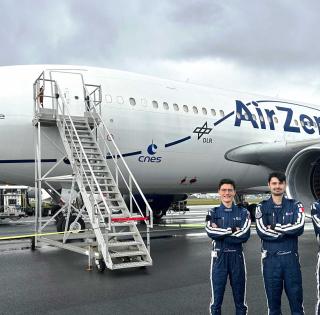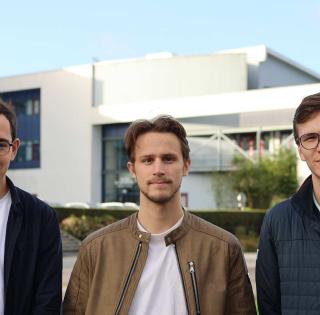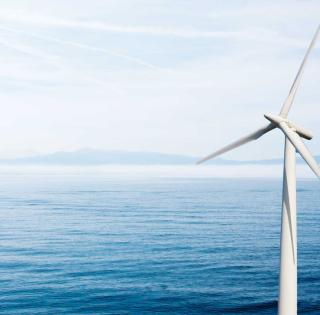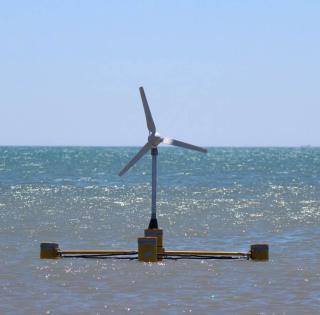
What was your background before joining ENSTA Bretagne?
For about twenty years, I worked in the West Indies, in Monaco and in Switzerland, in particular.
I worked for four years on my own in Martinique in the marine environment as an independent consultant. I worked on a fishery resource management problem ("reserve effect" on fish). My tasks were varied: field work (with a lot of diving), data analysis, writing reports, working with stakeholders (Direction des Affaires Maritimes – Directorate for Maritime Affairs, Comité régional des pêches – Regional Fisheries Commission, etc.). I then worked for seven years at the Oceanographic Museum of Monaco where I held the position of assistant to the Aquarium manager and project manager. I then worked in Switzerland to launch an organization.
Why did you choose to enroll on the Specialized Advanced Master of Science degree course in Marine Renewable Energies Expertise?
Despite my experience in the marine environment and my skills in managing transdisciplinary projects, I lacked that "little extra" to work in the field of marine renewable energy (MRE). I therefore naturally turned to ENSTA Bretagne, which offers the oldest, most advanced course in the field, with a very high technical level.
Before I enrolled on this course, I had some concerns about my ability to follow it. I spoke with graduates of the course who reassured me. I also owe a lot to Jean-Yves Pradillon, the course supervisor, as he is the one who selected my application and placed his trust in me.
Where did you do your internship?
I joined Créocéan, a design office specialized in marine environment and oceanography, located in La Rochelle, to work on an exciting subject: an assignment to provide project management assistance to the State in carrying out an inventory of the current environment within the framework of various projects of wind farms at sea. This included monitoring the initial studies carried out regarding the various compartments of the ecosystem (fish, birds, marine mammals, etc.) and the physical environment (water quality, sediment quality, underwater noise, etc.).
And at the present time? What job do you have?
At the start of October, I joined the Neodyme Group as a marine environment engineer. The core business of Neodyme, founded in 2004 and which became a SCOP in 2020, is focused on assessing and monitoring of industrial and professional risks as well as environmental impacts, in all phases of its customers' activities (design, construction, operation, maintenance and dismantling).
In recent years, Neodymium has become a major player in France in renewable energies, in particular marine energies (MRE). The services offered are in the form of technical assistance or design office. My task within the structure is to develop the business related to the environmental aspects of MRE projects.
What do you remember about your course at ENSTA Bretagne?
This marine renewable energies course represents a very rewarding experience. I would recommend it to anyone who wants to work in the MRE field. It is a highly recognized course that opens many doors. I was able to interact with more than 80 contributors during my course, which allowed me to develop my professional network. I see this course as a toolbox, through which each student can build their own career path. The key is to be proactive.










